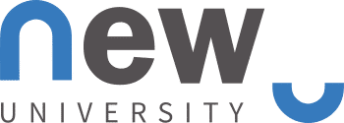faculty
SPRING 2025 Faculty
Akbar Soleimani
Foundational Analytics
Akbar Soleimani is an experienced scientist specializing in health informatics, data analysis, and research management. With over two decades of experience, Akbar has a proven track record in research managing, advanced statistical methods, and health outcomes research.
He currently serves as a Research Scientist at Howard University, where he contributes to the RECOVER study, focusing on the long-term effects of COVID-19. Akbar is skilled in utilizing various data analysis tools and has a strong background in nutrition and cancer research. His work has been published in numerous peer-reviewed journals, and he has presented at conferences such as the American Association for Cancer Research.
Akbar holds a Ph.D. in Nutrition and an MSc in Health Informatics and Data Analysis, with a dedication to advancing scientific knowledge and addressing health disparities.
Betsy Garcete
Positive Psychology
Betsy Garcete holds a Master's in Business Management from the Catholic University of America. She founded ZOPHIA, a custom clothing business for women in Washington, D.C., following her graduation in 2010. With a diverse background spanning various sectors, Betsy has experience in managing operations, design, and teaching art. She is particularly passionate about promoting women in business, sustainable fashion practices, and the principles of design thinking. Now, she brings her expertise to the classroom, teaching the innovative processes of design thinking and positive psychology.
Gil Mitchell
Rhetoric: The Art of Persuasion
Gil Mitchell is an award-winning artist, educator, and theatre professional. As a teaching artist, he’s worked for institutions such as the American Shakespeare Center and the Shakespeare Theatre Company. His classes combine classical education with contemporary knowledge, giving students a foundation of invaluable training that will be useful no matter what their chosen field. Gil holds a BA in Performing Arts and an MLitt in Shakespeare and Performance from Mary Baldwin University, and is a recent graduate from the George Washington University and the Academy at the Shakespeare Theatre Company’s Classical Acting MFA program. On his days off, Gil spends his time advocating for the use of the Oxford Comma.
Matthew Baker
Climate Science
Matthew Baker is a graduate of the College of William & Mary (BA) and the Harvard University Graduate School of Education (M.Ed). After teaching as a Fulbright Scholar, Matthew joined the tech start-up world managing Machine Learning and AI projects. He now works as a consultant for the Green Climate Fund, the climate finance arm of the United Nations. Matthew is looking forward to teaching Climate Science this spring.
Peter Smolianski
Data Science for Business; Mind, Body, and Machines
Peter is an IT Executive with nearly 25 years of industry experience, serving the United States federal government organizations including the Defense Finance and Accounting Service, the United States Marine Corps, the District of Columbia Courts, and the Federal Judiciary. Mr. Smolianski held hands-on roles including Systems, Database, Applications, Storage, and Network Administrator and leadership positions including Chief Technology Officer, Chief Information Security Officer, and Director of Information Technology, Presently, Peter's "day job" is the Director of Information Technology for the United States Bankruptcy Court, District of Maryland. In addition to his industry experience, Peter has been authoring and teaching technology related courses for various DC area graduate, undergraduate, and professional schools for over a decade. Mr. Smolianski has earned a Master of Science in Information Systems from the University of Maryland Baltimore County, graduating with a 4.0 GPA, and is a certified Project Management Professional, ITIL practitioner, and CompTIA technologist.
Roy Morris
Law, Regulation, and Strategy
Roy Morris is an accomplished professional with a comprehensive background in business, law, and academia. MBA from Wharton, JD from GWU, and SM & EE from MIT. He is fluent in Artificial Intelligence, engineering and technology policy issues. He is recognized as a strategic consultant, legal advisor, and coach with a successful track record spanning decades in telecom, law, finance, investment, and tech. He has extensive experience in litigating complex cases, advising startups, and leading business development efforts. Mr. Morris has a proven ability to navigate legal, regulatory, and business challenges across diverse industries. He is always embracing opportunities to contribute expertise, mentorship, and strategic insights to drive business and student success.
Ruth Lyons
Modern World; Understanding Other Cultures
Ruth Lyons holds a BA in Drama and Theatre Studies, an MA in Medieval and Renaissance Literature, and an MA in Strategic Studies from University College Cork as well as a Professional Diploma in Education from University College Dublin. She has taught in various schools and colleges around the world and works in assessment development for the International Baccalaureate Diploma Programme. Ruth is teaching the Modern World and Understanding Other Cultures courses at NewU University.
Viktoriya Zotova
Capstone Project
Dr. Viktoriya V. Zotova is a business professor with expertise in financial management, macroeconomic policy analysis, and sustainability disclosures. She is teaching undergraduate and graduate courses at Georgetown University. For nearly a decade, Dr. Zotova has worked at the International Monetary Fund (IMF), primarily on international investment policies, including emerging crypto asset regulations. She has several publications under the IMF banner. Dr. Zotova holds a PhD in Business and Management from the University of Maryland and ALM in Legal Studies from Harvard University.
Co-teachers: Erik Scott & Lia Mandavalli
Brain and Cognition, Cognitive Psychology
Lia Mandavalli is a graduate student with a background in Behavioral Neurology, Molecular Cellular Biology, and mental health research. Her recent research focuses on the psychological aftercare of patients with traumatic injuries, emphasizing long-term physical and psychosocial outcomes. Lia is passionate about integrating neuroscience, mental health, and patient care.
